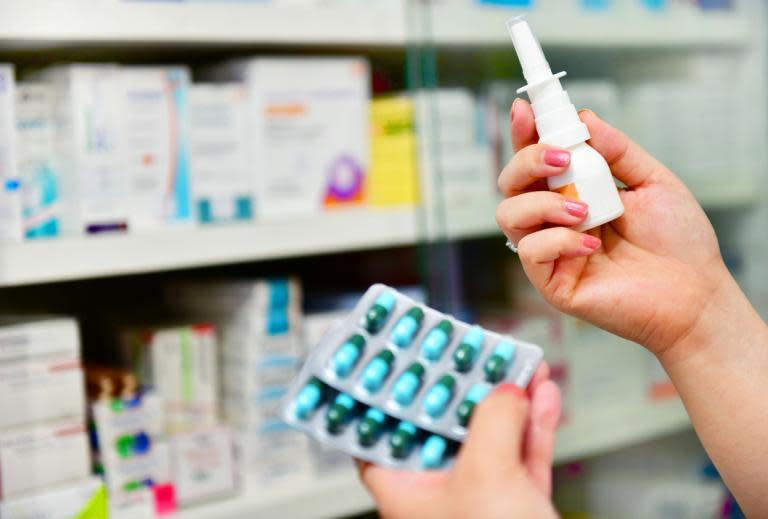Uncertainty surrounding our medicines after Brexit provides another good reason to march
In amongst the abstruse speculation about the length of the Brexit transition period, how the facilitated customs arrangement might work and the true meaning of the “backstop” at the Irish border, sometimes it is worth reminding ourselves of the concrete, real and immediate risks to the UK of leaving the European Union. One such risk is whether we will have a reliable supply of up-to-date medicines and drugs, both in the short and the long term, after Brexit; few issues highlight the short- and long-term costs of leaving the EU more graphically and more personally.
The European Medicines Agency is being transferred from London to Amsterdam, and with it the bulk of the expertise in testing and approval of medicines. If Brexit goes ahead, then the UK will be outside this procedure, one that the UK played a major part in creating and administering. Instead, the British will have no formal role in the approval of new drugs by the EMA – and this will impose additional delays for British patients as a result.
Thus dozens of drugs said to be mere months away from their approval will now have to wait for it from a presently underpowered UK agency, the Medicines and Healthcare products Regulatory Agency (MHRA). Of course, the British could simply accept the approval of the EMA as read – but then what is the point of Brexit? It is hardly an example of “taking back control”.
Sick Britons who need to take drugs for depression and prostate cancer, for example, may well need to wait longer than they otherwise would because of the fact of EU withdrawal, despite the government’s assurances about being ready for a hard Brexit.
Nor is there much confidence that the UK will even be able to stockpile existing approved drugs for use after a disorderly Brexit. Sir Chris Wormald, the permanent secretary at the Department of Health and Social Care, has told the House of Commons Exiting the European Union Committee that he cannot be confident that essential medicines will still be available in such a turn of events, describing the challenge as “extremely difficult”.
He added that the department has major concerns about staff shortages and the treatment of British travellers to the EU after Brexit – whatever particular shape that withdrawal took.
It was revealed in July that the government had asked drugs companies to stockpile six weeks of extra supplies, although the Brexit secretary, Dominic Raab, said that such arrangements need not “scare people”.
But they do, and understandably so. The UK is a major power in the pharmaceuticals industry. With European partner companies and governments, the arena of drugs and medical research is one where the EU has achieved much for its citizens. When we visit other EU nations for business or on holiday, or even to settle, we largely need not worry about getting treated quickly and efficiently. That does not seem to be the case under some of the Brexit scenarios now being discussed.
When something as fundamental as life and health is concerned, British citizens should expect their politicians and civil servants to be able to offer them reassurance and guarantees. As it is, we have only expressions of diffidence, a request to private companies and wishful thinking that some sort of deal will be reached in the end. Another reason, then, and a powerful one, for people to be given a Final Say on this increasingly shambolic, and hazardous, Brexit.

 Yahoo News
Yahoo News 

